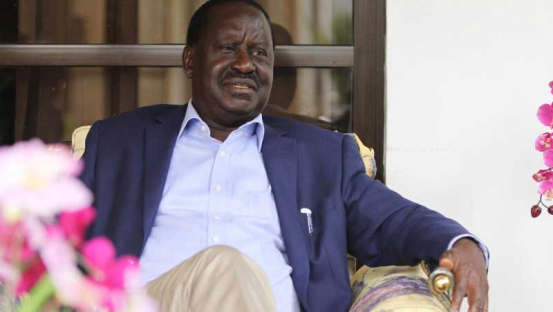×
The Standard e-Paper
Kenya’s Boldest Voice

Nothing on him or around him points to the fact that he is currently in the eye of Kenya’s biggest political storms that has claimed dozens of lives, and threatens to turn the 54-year-old country upside down.
But as he buckles up to ride the storm, Raila told the Sunday Standard in an exclusive interview of the five key changes he says should form the basis of talks between him and President Uhuru Kenyatta.